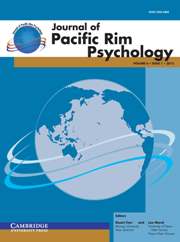Article contents
Sudanese Perspectives on Resettlement in Australia
Published online by Cambridge University Press: 23 February 2012
Abstract
Resettlement programs for people from a refugee background must respond to a variety of concerns as people from diverse backgrounds and often longstanding periods of upheaval and hardship enter their new resettlement communities. Host countries approach the demands of resettlement through varying programs and policies and those differences across countries can profoundly affect the newcomers' experiences. The current study employs quantitative and qualitative methods to examine the individual and contextual factors that influence the resettlement experience for adults from Sudan being resettled in Queensland, Australia. Ninety Sudanese adults were recruited through snowball sampling techniques for the quantitative study, with 10 individuals purposefully selected to complete the semistructured qualitative interview. In the quantitative sample, 25 to 30% of participants reported significant symptoms of psychological distress and frequent experiences of discrimination, and the majority of participants reported integration (identifying with both Australian and Sudanese cultures) as their method of acculturation. Participants reported feeling initially welcomed into Australia, with positive influences including bonding and bridging capital, which helped them in their adaptation, and negative influences including problems with the resettlement programs and experiences of discrimination. The findings underscore the importance of sociopolitical context on refugee experiences of the resettlement process.
- Type
- Articles
- Information
- Journal of Pacific Rim Psychology , Volume 4 , Issue 1: Special Issue: Psychological Impacts of Forced Migration , 01 May 2010 , pp. 30 - 43
- Copyright
- Copyright © Cambridge University Press 2010
- 25
- Cited by


